CHECK OUT OUR MEDIA MENTION IN NUTRAINGREDIENTS
19-May-2022 — With the start of the IPA World Congress + Probiota Americas fast approaching, NutraIngredients-USA caught up with each of our Probiota Pioneers, curated entrepreneurial, science, and tech start-ups due to appear in Washington, D.C., June 1-3.
Comet (formerly known as Comet Bio) is upcycling the prebiotic arabinoxylan for its Arrabina from a variety of sources such as wheat straw, brewer’s grains, corn stover, and pea husks. The ingredient is reported to promote growth of beneficial bacteria in the gut, help maintain healthy blood glucose levels, and support immunity.
We caught up with the company ahead of the upcoming IPA World Congress + Probiota Americas to find out more and learn why personalization of gut health regimens is going to be paramount in coming years.
NutraIngredients-USA (NIU): What was the driving force behind founding Comet?
Comet: The vast majority (90%) of Americans are falling short of their dietary fiber needs despite growing awareness of its many health benefits. Food manufacturers have yet to find the perfect fiber ingredient – one that is natural, functional, and versatile – to fill the 2-million-ton annual fiber gap in the US alone.
Meanwhile, nature’s best fiber, arabinoxylan, has laid dormant in plant materials left behind and processed out of our modern food system. Arabinoxylan is an exceptional soluble dietary fiber with clinically-proven health benefits and superior tolerance in the gut. Despite arabinoxylan making up 70% of the soluble fiber found naturally in grains, large quantities of processed whole grains are needed for a single serving size of soluble arabinoxylan fiber. For example, five cups of wheat bran cereal have to be consumed to reach the serving size of soluble arabinoxylan fiber needed for a prebiotic benefits (3.4 grams).
Only Comet has the patented upcycling technology needed to extract naturally-occurring arabinoxylan fiber and make it available in a proprietary, high purity and cost-effective form. This simple, yet hard to replicate process, uses only steam, water and pressure for extraction.
Comet’s line of proprietary Arrabina dietary fiber was specifically developed to fill the market need for a low-dose prebiotic fiber that can be used in a wide array of food and beverage applications with no trade-offs in terms of taste, cost or performance.
Why Arrabina is Arabinoxylan is perfected:
– Versatile- No taste, color, cost or performance trade-offs
– Proven- Tolerability & Health claims
– Potent- Low inclusion rate for claims
– Sustainable- Low impact on the environment
The dietary fiber gap is a BIG problem and Comet has the only BIG enough product opportunity, Arrabina, to solve it. AND we can meet this opportunity with:
– No new acres and low environmental impact
– No taste, color, cost or performance trade offs
– No fear of GI distress
NIU: What are some of the challenges you’ve encountered over the first few years of the business?
Comet: Finding the right partners – from investors to advisors to manufacturing – has been critical to our success.
We recently completed a $25 million Series C financing and have used these funds to invest in the innovation and commercialization of our Arrabina product line. The round was led by Open Prairie, a multi-faceted private equity fund management firm with headquarters in Effingham, Illinois. Other investors include Louis Dreyfus Company (LDC), BDC Capital, and existing investor Sofinnova Partners.
These investors have all already added value beyond their monetary contributions, and we have been able to leverage their expertise to expand our network.
We have partnered with RE Energy, a REE Holding company, to build a dedicated manufacturing facility in Kalundborg, Denmark which will supply over 4 million kilograms of Arrabina per year.
Food waste is a colossal problem, and it needs collaboration coupled with innovation to solve it. We are working with farmers at the start of food production to help ensure their harvest and crop leftovers are used to their maximum potential. We are also working with food manufactures to ensure that less food goes to waste during production by upcycling byproducts including brewer saved grains, corn bran and soybean hulls.
NIU: How important are the upcycling and sustainability issues for your customers and consumers?
Comet: Today’s consumers expect products that are more sustainable and are environmentally friendly. In efforts to meet this expectation, food and beverage producers have done a great job in funding research and development projects to find more sustainable practices. Upcycled ingredients and products can help. By leveraging materials that would otherwise go to waste – such as straw leftover after a farm’s harvest or leftover parts of food processing like spent brewers’ grains– we can close the loop on the food supply chain. Providing upcycled ingredients allows companies to develop products that are more sustainable. Upcycling is still in its infancy, but gaining traction and according to the UFA, it is poised to be a trend as important as organic certification.
The upcycling story has really resonated with customers and consumers. We recently performed a consumer research study that found that 42% of consumers believe that reducing food waste is a reason to purchase healthy and sustainable products. That same study found that consumers believe taste (56%) and products that are good for their wellbeing (60%) are also very important factors. Comet’s ingredients allow our customers to tell the story along all these important factors. We can make products good for you, good for the plant, and good tasting. No compromises.
NIU: As one of our pioneers, could you outline your approach or ethos in treading a path or direction that no other firm has gone before? How do you weigh up the risks and benefits here?
Comet: At Comet, we prioritize creating ingredients that are not only healthy, but also practical. It does not matter how healthy an ingredient is if it does not deliver on taste or cannot be easily added to products. For example, our Arrabina prebiotic fiber is a fully-soluble powder with a low inclusion rate needed for on-pack prebiotic claims. It dissolves clear and is stable in solution without impacting flavor which means it can add valuable nutrition to the foods and beverages already part of consumers routines without taste, convenience, or price trade-offs.
We are also market-driven and work to stay flexible to meet our customers’ evolving needs.
NIU: In the probiotic, prebiotic and microbiome space, what would you say is the next research area that the industry needs to keep its eye on?
Comet: Having more prebiotic fiber options many health benefits for consumers. Many probiotic strains exist, as well as many prebiotic dietary fibers—so gut health is not a one-size-fits-all formula. As such, some probiotics work better with specific prebiotics and vice versa. No one scientifically validated “super prebiotic” optimizes every strain of probiotic in the gut. A diverse diet of prebiotics is needed to optimize an array of probiotics within the gut. This is why personalization of gut health regimens is going to be paramount in coming years.
As demand for prebiotic supplements grows, manufacturers must offer diverse options to meet their customers’ needs. For example, while inulin—a popular prebiotic additive generally derived from chicory root— may be beneficial in supporting the growth of beneficial bacteria for many consumers, others may find our prebiotic dietary fiber Arrabin to be more effective.
NIU: Finally, what is the significance for Comet Bio of being named one of our 2022 Probiota Pioneers, and how do you think it helps your profile in such an innovative, ever-changing industry?
Comet: We strive to break the gut health market status quo by supplying ingredients that are naturally better in terms of sustainability, versatility, and nutrition. Receiving industry recognition would validate our efforts and the need for a novel prebiotic fiber option. We can only close the fiber gap with industry support and recognition of our proprietary dietary fiber.






